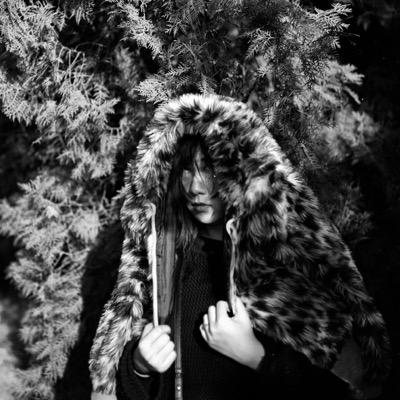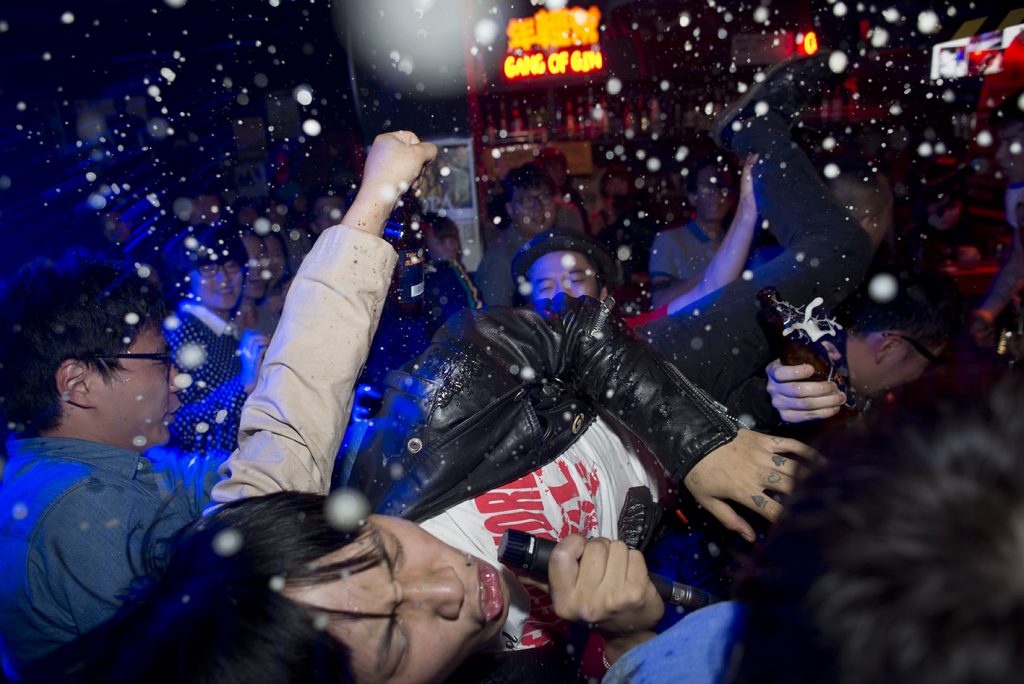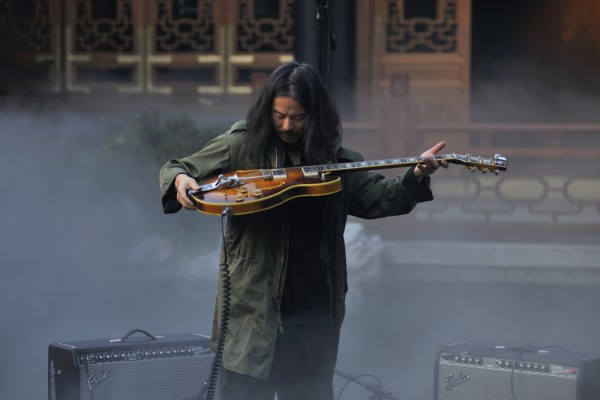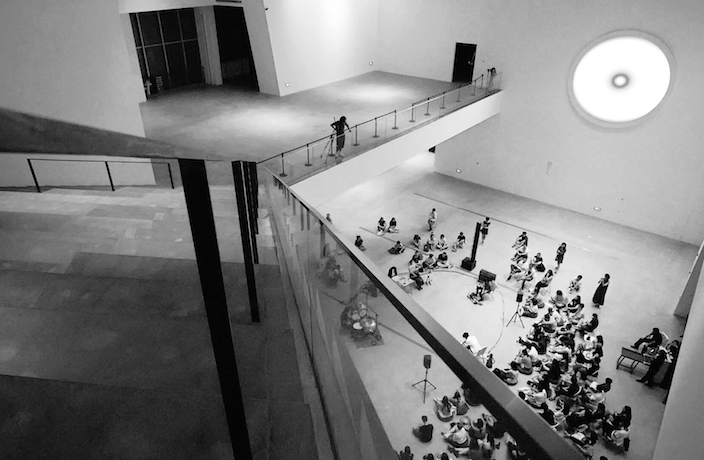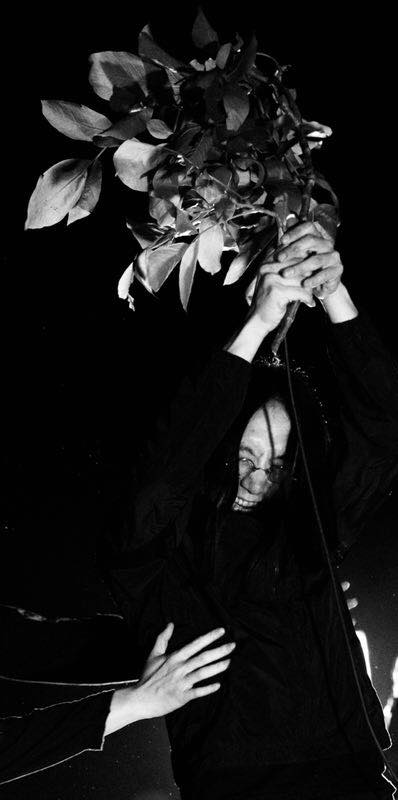SHENG JIE: BEIJING
GUYUB
MUSIC SCENES
Local experimental scenes introduced by our network of femxle musicians
SHENG JIE
BEIJING
At the moment in Beijing there are only a few venues left for experimental music: Fruity Space and School, both located in the city centre. Some contemporary music events still happen in art museums or galleries but because of COVID-19 many venues shut down lately. Moreover, in the last two or three years, because of the government’s new urban planning, this city has not been as vibrant as it used to be.
Many interesting bars, shops, areas etc ceased to exist and in order to survive venues have to organise mainstream music gigs; besides, many friends chose to leave Beijing for other cities in order to be able to continue to work on their music. So Beijing is no longer a place for idealists; if you don’t have an official job or a good salary, it’s probably not going to be easy for you to live here.
Vavabond
School
Li Jianhong
Top left: Vavabond – Bottom left: School Live house – Right: Li Jianhong
Because the contemporary music and experimental music scene here became quite sparse, only a few of my good friends are still attempting to be creative in Beijing.
Like Li Jianhong and VAVABOND. They are a couple, they have solo projects but they also have a psychedelic noise band named VagusNerve.
Or Wang Ziheng, an experimental musician who plays saxophone and organizes open field noise festivals like Nowhere festival.
Nojiji is a noise collective kept alive by Li Yangyang and Zhang Zhongshu, who also organize public performances in forests and open plains across rural China.
Yan Jun and Zhu Wenbo are quite active contemporary musicians who organized many contemporary music gigs and events. Yan Jun also runs a label: Subjam.
Talking about labels, Maybe Noise was a contemporary music label found by Yan Yulong, Zhang Shouwang and myself. In the past two years we released three vinyl albums, we organized one exhibition, some avant-garde music festivals in different cities (like Sally Can’t Dance Avant-Garde Festival which took place in Shanghai, Chengdu and Beijing) and many gigs.

Bottom: Wang Ziheng
An introduction to the Noise Collective Nojiji – one of two films curated by fashion designer Yang Li
I’m not sure how to continue this article because there is a wide blurred area between current reality and my own past memories and words have been floating there. So many things have changed, we are now used to staying at home, going out with a mask and keeping a social distance; however the music scene I’ve been part of for the past ten years neither moved on nor faded out. We just take care of it with patience and continue to create at home safely. Many friends made their projects available online: gigs, collaborations and so on.
This year, in addition to releasing my album “Oviparity” (on Maybe Noise and Wv Sorcerer Productions) and to working on three online collaboration projects, I have also been working on “一周音乐 – Music of a week“; it’s a project focused on the release of a seven tapes-collection album in collaboration with the Beijing Central Academy of Fine Arts.
The idea is to bring experimental and sound art to the art academy, because this is something still quite new in China and we hope that such a project’s study and observation can support experimental music in China.
We invited seven experimental musicians to make seven albums, which will be released on tape in 100 copies. Each of them has to create one album about one day of the week within 2 months. We assigned a mood for each day of the week – from Monday to Sunday – on the basis of which the seven of them should create something. Like, for example, Monday is noise music, that fits for Mondays because you don’t want to work and you usually feel grumpy while Tuesday is quieter.
The seven musicians involved in the project are professional musicians but they all also have other music-unrelated jobs.
In China, as well as elsewhere, many musicians live with multiple identities: the one that depends on the salary received for doing an “unexceptional” job, and the one that depends on professionally creating music without being paid for it (hence it being modestly defined as an amateur activity).
Thanks to such multiple identities, their creations – regardless of what labels are applied to them – somehow benefit from the relaxed relationship between the artist identity and the artwork itself, that in this way seems to reveal its innermost honest core.
Therefore these compositions will be related to the musicians’ life as a whole.

SHENG JIE, born in 1975, is an artist currently based in Beijing, China. Her work has been displayed at several exhibitions in Beijing, Shanghai, Hong Kong, Tokyo, New York, Vancouver, Strasbourg and Berlin. She founded Shan Studio in 2010 and DOT Audio Visual Art Laboratory in 2018 and she has been Maybe Ensemble’s manager since its creation.
“Listening” and “Watching” are two major elements in Sheng Jie’s work attempting to make a circulatory system of perception in space. Such a system is exported by many different forms: experimental music, sound, video, painting, film, installation, composition, audio-visual art performance etc.

